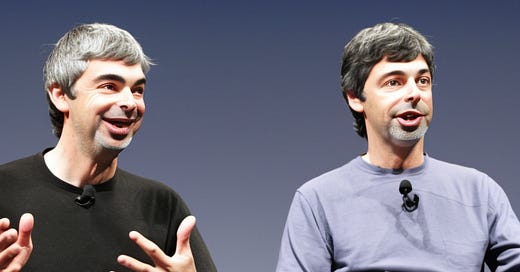Google Founders Return, ChatGPT Passes Tests, CNET Pauses A.I. Content
Here are the week's top stories about artificial intelligence
Google’s co-founders met with executives last month to review the company’s A.I. roadmap, after CEO Sundar Pichai declared a “code red” related to the threat from ChatGPT and OpenAI. The founders “approved plans and pitched ideas to put more chatbot features into Google’s search engine,” according to an article from the New York Times. Google expects to release more than 20 new products and demo a version of Google with chatbot features this year.
With ChatGPT passing graduate-level exams, some professors are adapting to the new technology by writing rules in their syllabi. Wharton professor Ethan Mollick now has an AI policy that states, “I expect you to use AI (ChatGPT and image generation tools, at a minimum), in this class. In fact, some assignments will require it. Learning to use AI is an emerging skill and I provide tutorials… about how to use them.”
Is citing an A.I. bot as an author on a scientific paper appropriate? Journal editors, researchers, and publishers are now facing the question. An article published by Nature’s news team says that it found at least four instances where ChatGPT was listed as an author on papers or preprints.
CNET’s executives told staff this week that it is pausing all A.I.-generated content, after the company came under fire for bots writing stories “for months.”
Google is at risk from ChatGPT, wrote Can Duruk for the Margins. The author concluded that it comes down to UX: “the real reason Google is at risk [is] that thanks to their monopoly position, the folks over at Mountain View have left their once-incredible search experience degenerate into a spam-ridden, SEO-fueled hellscape.”




